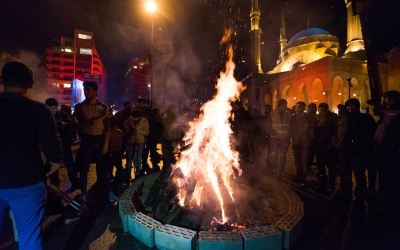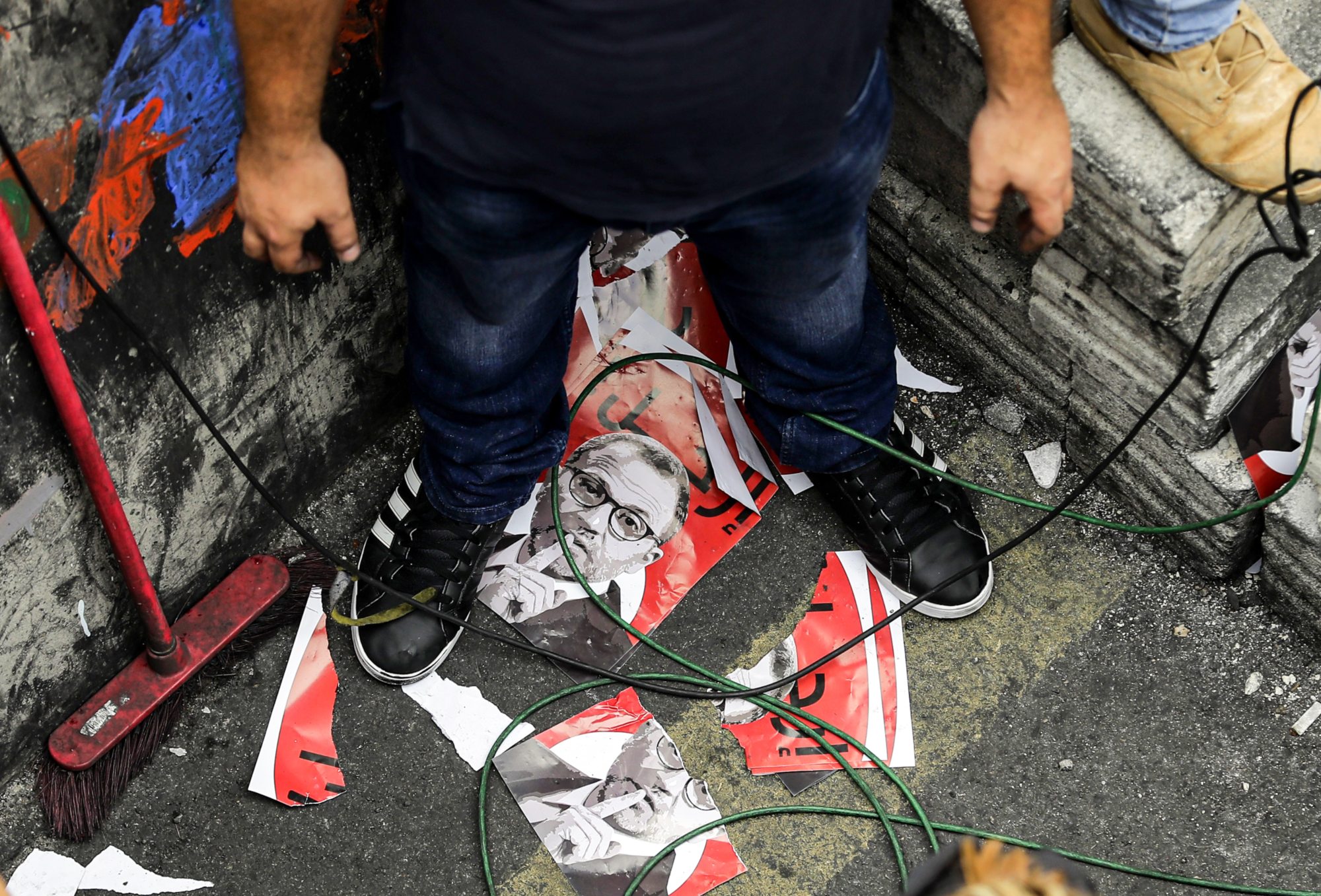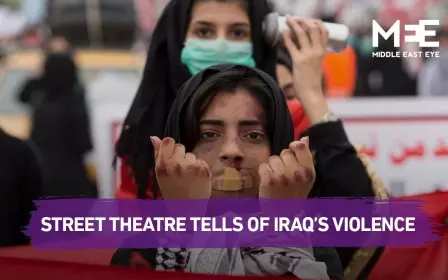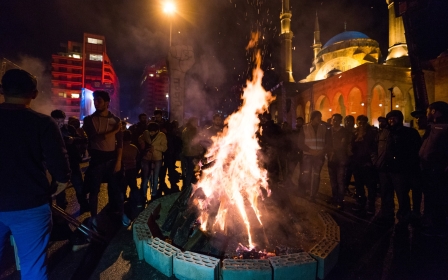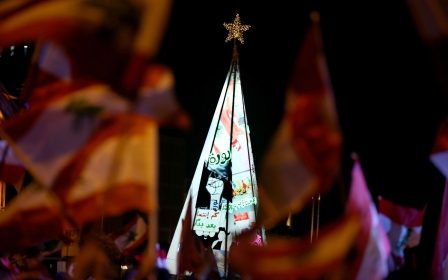The show must go on: Beirut theatre holds firm amid upheaval
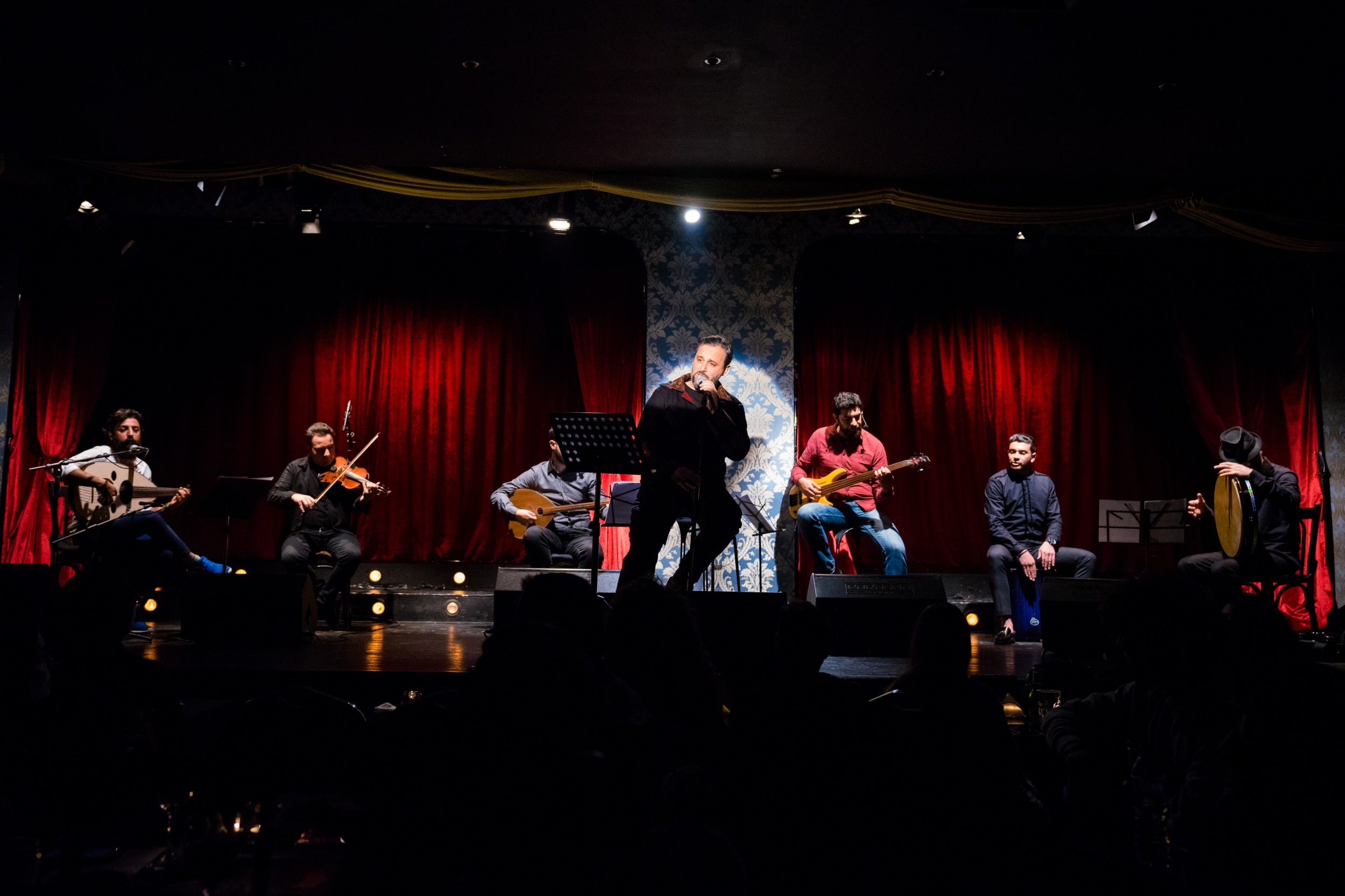
"We're the first to perform at Metro after the boycott!" the singer of Sakkarna Eldukkan said with a big smile on his face.
It looked like any ordinary night at the cabaret-style Metro al-Madina theatre, with tables packed and people sitting shoulder-to-shoulder - but it wasn't.
Since an unprecedented popular uprising erupted across the country in October, Lebanon has been shaken by political and economic developments, and the venue has been no exception.
Sakkarna Eldukkan is Arabic for "We closed down the shop" - "the shop" being a reference to the Lebanese state's long-standing economic corruption.
Between songs, the band talked about a recent call by Free Patriotic Movement (FPM) leader and caretaker Foreign Minister Gebran Bassil to boycott the theatre.
"Look at all the people who cursed you Gebran [Bassil]," the singer said. "They're all over Lebanon, not just at Metro." The audience cheered and clapped.
A political boycott
In the eight years since its opening, Metro al-Madina has become a popular venue for new theatre and music from a variety of artists in Lebanon.
Situated below ground in the heart of Beirut's Hamra Street, many of Metro al-Madina's performances and productions dabble with themes related to Lebanese society, history and politics, with some people jokingly calling the venue and its staff the "Ministry of Culture".
For nearly a year, the theatre also hosted performances of And Colette Didn't Show Up, a play about framed actor Ziad Itani's 2017 arrest and torture over false allegations of cooperating with an Israeli spy.
Earlier this month, however, Metro al-Madina got directly caught in a political storm after cell-phone footage was shared showing the audience at one of the theatre's shows chanting slogans against Bassil.
Bassil, who in addition to his ministerial role is also the son-in-law of President Michel Aoun, has been a significant target of criticism from Lebanese protesters. His party, the FPM, which has the largest share of seats in parliament and the cabinet, has not been spared either.
On 5 January, the party issued a statement during the evening news broadcast on the FPM-run OTV calling on its supporters to boycott the Metro al-Madina.
The theatre, the statement said, had "lost its cultural and civil value, and has transformed into a platform for insults".
Metro al-Madina co-founder Hisham Jaber responded to the FPM statement on social media.
The theatre, he said, "accommodates all human beings in all their shapes, colours, and beliefs," before mocking the government's sense of priorities, calling the outrage "talking about Listerine" while "people are starving".
Though Metro al-Madina isn't known for shying away from political satire in its productions, Jaber, in a more serious tone, admitted the Free Patriotic Movement's statement was indeed perplexing.
"It was baffling that they called to boycott a theatre, given that it was the audience who made those chants and not the artists on stage," he told Middle East Eye.
"Their [the Free Patriotic Movement] supporters are welcome, but we cannot control [what] the audience [says]."
Though Lebanon is considered a safer space for freedom of expression than elsewhere in the region, human rights organisations have noticed a significant decline in such freedom in recent years, with increased cases of journalists, artists, and people of all stripes being interrogated over accusations of defamation and slander.
However, Jaber told MEE that Metro al-Madina has never faced such issues with the Lebanese authorities since its inception.
Coping with Lebanon's economic crisis
Metro al-Madina has made no secret of its staff's support for the three-month-old protest movement, which has called for an overhaul of a sectarian political system riddled with clientelism and corruption.
'It's one of the few places that keep us all alive'
- Lara Nohra, Metro al-Madina communications officer
Lara Nohra, the venue's communications officer, told MEE that members of the team took part in the country's mass protests, with some of the theatre's musicians bringing their instruments to the streets as well.
But, like many other establishments, Metro al-Medina temporarily stopped its performances in light of the country's extraordinary circumstances, though the theatre's bar was kept open.
As some of the large-scale protests toned down, management and staff met to evaluate the situation as Lebanon's economy continues to decline and as Lebanese banks have increasingly restricted cash withdrawals.
Closing down Metro al-Madina was one of the ideas proposed.
"Nobody agreed on that," Nohra said. "We should be doing something to keep the place alive... [after all], it's one of the few places that keep us all alive."
The team eventually agreed to adapt a "pay-what-you-can" system. Nohra said it was an appropriate decision given "the current economic situation".
"We thought this could actually excite people of all backgrounds who usually like to attend shows."
But times had been tough even before the popular protests broke out, as theatres and venues across the Lebanese capital have been closing. In November, the Syndicate of Restaurant Owners, which includes nightclubs and cafes, issued a damning statement, saying that some 265 establishments had closed since September as the country's economic crisis worsened.
"The economic crisis... started before the revolution," Jaber said. "We and other establishments were harmed [of course]."
But how does the venue's owner feel about the new pay-what-you-can pricing system and its perspective for the future?
"We'll see how it goes."
Middle East Eye delivers independent and unrivalled coverage and analysis of the Middle East, North Africa and beyond. To learn more about republishing this content and the associated fees, please fill out this form. More about MEE can be found here.


